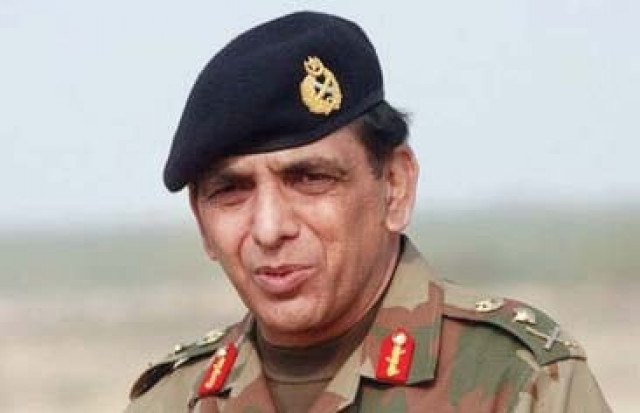Of khaki and mufti
A break with the US might go in favour of al Qaeda’s plans to impose a ‘nuclearised’ theocracy on Pakistan.

Since the one-line official statement about the meeting revealed nothing, the media excusably went on a guessing spree, starting with a civil-military resolve ‘not to make any compromise on national security matters’. This was followed by other obvious topics: Better coordination between civilian and military institutions, the Abbottabad probe commission, investigations regarding the terrorist attack on the Mehran base and the new wave of terrorist attacks. Unofficial sources added more spice by saying: “The civilian and military leadership resolved to launch an operation against the terrorists to stem the new wave of attacks and decided not to accept any external pressure.”
The meeting took place at the Presidency, thus highlighting a dialogue between party and government on the one hand and the Pakistan military high command on the other. The ultimate guess, given the general reading into the recent American visits to Islamabad, was that the military wanted to reaffirm the ‘national consensus’ on not operating against the terrorists in North Waziristan on the bidding of the US. Earlier, a separate statement from the meeting of the corps commanders had already pointed to the said consensus by reiterating the army’s resolve to go into North Waziristan at a time of its own choosing and opposing the operation of US drones in the area. What was the need to go through the same exercise again?
The meeting was attended by chiefs of all the arms of the military, including the naval chief, who has come under particular pressure after the al Qaeda attack on PNS Mehran in Karachi. The meeting also featured the air chief, who had reportedly offered to counter the drones operating in Pakistani territory with an air force response. General Wynne — who has been taking the current US-Pakistan flurry of contradictions in his stride — was there too. President Asif Ali Zardari and Prime Minister Yousaf Raza Gilani have already endorsed the ‘charter’ of ‘reassessing relations with the US’ awarded to the Pakistan Army by a unanimous resolution of a joint session of the parliament. What more could they have told the top brass except that they oppose the US policy in the region and are against the US-proposed operation in North Waziristan?
It is difficult to say what exactly transpired but other possible topics are: A discussion of the anti-army statements issuing from all quarters in the political community and the media. The top brass could have gone through the contents of the recent high-level meetings with the Americans which have not gone well, including the one with CIA Director Leon Panetta where, according to Time Magazine, Mr Panetta accused Pakistan of colluding with pro-Afghan Taliban militants in the tribal areas. The military leadership may have pointed to other ‘irregularities’, such as a recent statement by a Khyber-Pakhtunkhwa minister that Pakistan alone can’t fight the terrorists and that it must act together with the US to defeat them. Next year, the Americans are going to start leaving Afghanistan. Unlike Pakistan, where policy is stuck obsessively on India, Washington is going to change tack and show flexibility, which some have already called defeat; but it may pan out negatively for Pakistan even if Islamabad and Kabul move closer and Pakistan can retain some semblance of leverage or control over the Afghan Taliban under Mullah Omar. It is from the inside that Pakistan is getting defeated through al Qaeda’s terrorism. From Nek Muhammad to Baitullah Mehsud and Ilyas Kashmiri, Pakistan has been able to tackle its tormentors only with America’s help. Hence, a break with the US might go in favour of al Qaeda’s plans to impose a ‘nuclearised’ theocracy on Pakistan.
Published in The Express Tribune, June 15th, 2011.



















COMMENTS
Comments are moderated and generally will be posted if they are on-topic and not abusive.
For more information, please see our Comments FAQ